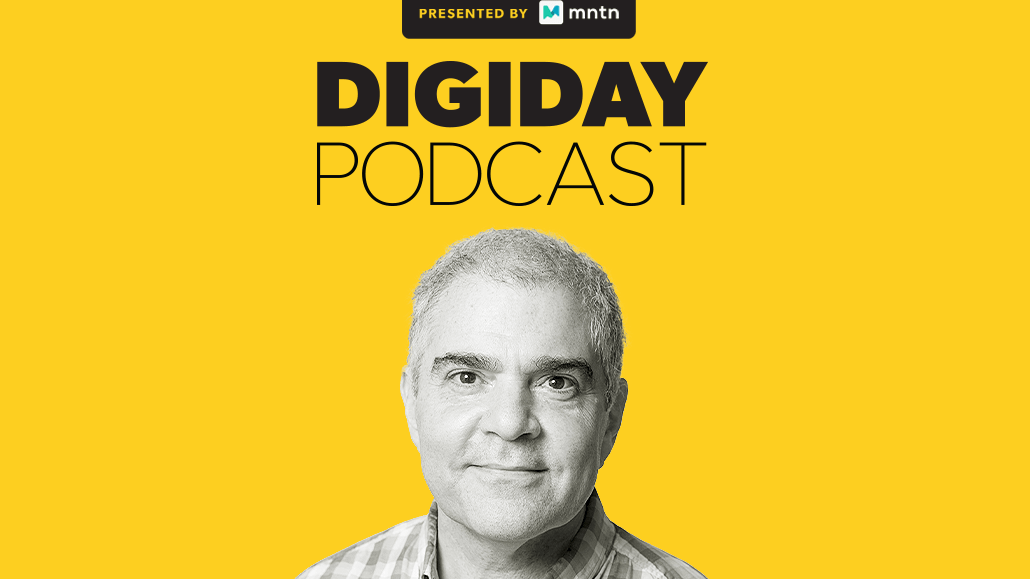Secure your place at the Digiday Publishing Summit in Vail, March 23-25
Google’s David Temkin sheds light on the company’s preparations for disabling third-party cookies

Subscribe: Apple Podcasts • Spotify
Google is keeping to its end-of-2023 deadline for disabling the use of third-party cookies in its Chrome browser, the company’s senior director of product management, ads privacy and user trust David Temkin said in the latest episode of the Digiday Podcast.
Of course, that timeline could still change, as it has before. But part of Google’s decision to extend its previous deadline was to give the company time for testing and tweaking, said Temkin. “We’ve got a pretty good line of sight to the endpoint. We’ve got a good plan to get there, and we’re making rapid progress,” he said.
Much of that plan centers on Google’s Privacy Sandbox, which spans the company’s collection of cookie-replacing technologies. That includes contextual targeting proposal Topics and retargeting tool FLEDGE. And technically, Google has two Privacy Sandboxes: the web-oriented Privacy Sandbox for Chrome and the recently introduced mobile-minded Privacy Sandbox for Android.
Considering the development of the connected TV advertising ecosystem and CTV’s reliance on the cookie-like IP address, CTV would seem ripe to eventually receive its own Privacy Sandbox — a possibility that the Google executive entertained.
“At some point in time, could solutions be delivered on CTV that would deliver the same kind of relevant advertising that you can see on these other identifier-free platforms? Yes,” said Temkin.
Here are a few highlights from the conversation, which have been edited for length and clarity.
Standardizing the sandbox
We do hope that [Privacy Sandbox] becomes adopted industry-wide. There’s two separate steps to that. Do other browsers just take it in? Because they could. Chrome-based browsers — and there are many of them now — could simply adopt it. But ideally, this does become [standardized by the World Wide Web Consortium] W3C. That would ensure interoperability across the board. So that is the intent. It’s part of the browser; it’s part of the browser code base.
How Chrome data fits in Privacy Sandbox
Chrome data is not part of — we don’t use it for targeting, we don’t use it for measurement. There is one thing that we do use it for when it comes to ads, which is fraud detection. That’s it. So it’s not part of, “Well, we’ve got better data to target users.” It’s not along those lines. But it does help with anti-fraud.
Comparing/contrasting the two Privacy Sandboxes
You make an analogy: The trail of a user might be from app to app to app, which is a little bit like what is it from site to site to site; can that be used to determine a user’s interest? But when you’re looking at mobile, a big part of that is app installs. App installs are done based on what apps a user has, and that too is a similar sort of tracking concern. How do you deliver app ads that are driving people to install an app under such an environment? You need a certain amount of signal to do that. And that problem is being solved with Privacy Sandbox on Android. [It] has no direct analog on Chrome.
Fleeing the FLoC for Topics
FLoC would place users into a cohort of users that happened to have similar interests. But the browser was unable to determine — given the methodology that was used — what are your interests. So the user couldn’t go in and say, “Why’d I get this ad? And what are the interests that you think I have? And based on what?” FLoC didn’t provide for that. Topics is a lot better for those things because Topics [operates] within the browser. The browser itself knows what the topics are that are being inferred based on your browsing history. And that can be displayed to the user. The user can be given controls over them. That’s a major step forward right there.
More in Marketing

‘The conversation has shifted’: The CFO moved upstream. Now agencies have to as well
One interesting side effect of marketing coming under greater scrutiny in the boardroom: CFOs are working more closely with agencies than ever before.

Why one brand reimbursed $10,000 to customers who paid its ‘Trump Tariff Surcharge’ last year
Sexual wellness company Dame is one of the first brands to proactively return money tied to President Donald Trump’s now-invalidated tariffs.

WTF is Meta’s Manus tool?
Meta added a new agentic AI tool to its Ads Manager in February. Buyers have been cautiously probing its potential use cases.








